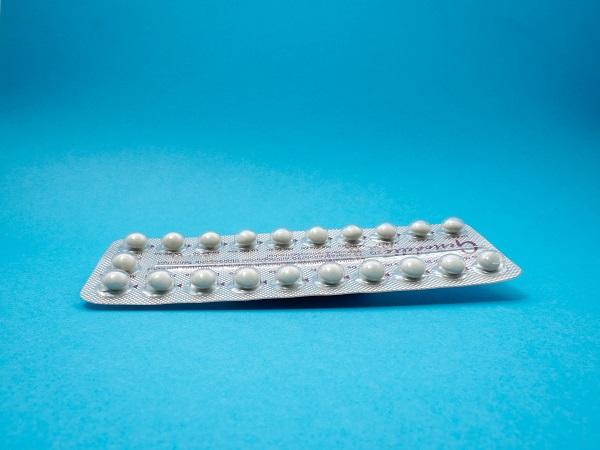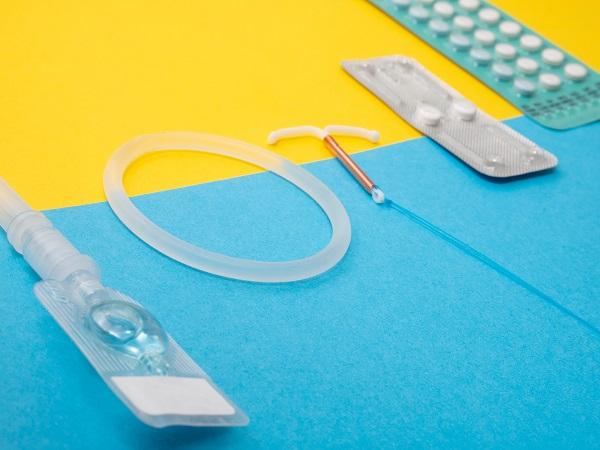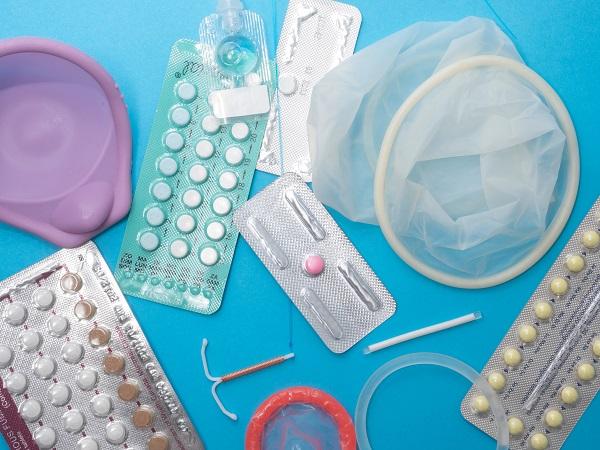Contraceptives and Sexual Function Considered
As pelvic floor physical therapists, we work with a lot of women who have some type of female sexual dysfunction, whether it may be pain with initial penetration, pain with deep thrusting/deep penetration, pain with orgasms, or decreased sexual arousal, desire, libido. Unfortunately, about 30-50% of women may suffer from these symptoms.
We often see women with sexual impairments have the following conditions/scenarios:
- Postpartum (regardless of delivery)
- Vaginismus (involuntary spasms of the pelvic floor muscles)
- Post-menopausal
- Vulvodynia
- Skin inflammatory conditions such as lichen sclerosus
As you can imagine, any of these conditions listed above, or just experiencing pain with any type of sexual activity can be debilitating and impair our quality of life. To quote,
Female sexual dysfunction is associated with physiological, psychological, social, interpersonal, medical and cultural factors,”
(Gȕrbȕz, et al 2020).
Common Types of Contraceptives
Lately, there has been more research linking the relationship between contraceptive use and possibly increased sexual dysfunction. But before we dive into sexual dysfunction topics, let’s go over common contraceptive types.
There are hormonal contraceptives (oral contraceptives, Mirena, etonogestrel implant, ring, “Depo” injections) and non-hormonal contraceptives (such as copper IUD, silver IUD).
Based on the research, hormonal contraceptives have a higher risk of negative sexual functioning compared to non-hormonal methods. This is likely due to ovarian suppression, decreased estrogen, increased androgen metabolism that results in increased SHBG levels which then leads to decreased free testosterone and androgen levels. Due to the hormonal changes in the tissue, this can lead to other conditions that increase the risk of sexual dysfunction and pelvic pain.
Conditions Associated With Oral Contraceptives and Sexual Function
A systematic review (Champaneria, 2016) found articles that discovered:
- Those with dyspareunia (pain with sexual intercourse) has a positive association with either current or past use of oral contraceptives
- Significantly increased risk of vulvar vestibulitis in women currently on oral contraceptives (as you can imagine, can affect our sexual function!)
- Significant relationship between interstitial cystitis/painful bladder syndrome and oral contraceptive use (we also know that women with painful bladder syndrome often experience pain with sex as well)
Libido, Sexual Desire, Lubrication & Pain
One study compared the test scores of The Female Sexual Function Index (FSFI) among different groups of those who took contraceptives and those who did not. The FSFI asks questions on sexual desire, arousal, lubrication, orgasms, overall sexual satisfaction/partner satisfaction, and vaginal penetration.
The authors of the study found that those who were taking contraceptives were significantly more likely to report pain, decreased desire, and issues with lubrication. However, they did not find a significant difference between groups on the arousal, orgasm and satisfaction topics. Among the groups, those using condoms showed the most positive scores of female sexual functioning on most topics.
One qualitative study involved having deeper conversations with women who believe they have negative effects specifically from hormonal contraceptives. Many women who ceased hormonal contraceptives for whatever reason (forgot to get a new prescription filled, postpartum, etc.) noticed a drastic difference in sexual functioning when they stopped taking it.
A common complaint among these women was significantly decreased desire. This inspired some women to either stop contraceptives altogether or find alternate non-hormonal contraceptives. Some women spoke up about how arousal and lubrication had decreased dramatically when on contraceptives and noticed a vast improvement as soon as they stopped the contraceptive method. Women who had menstrual dysfunction, irregular bleeding, or excessive bleeding also noticed decreased arousal but felt it was worth it for the stability of their cycle and other painful symptoms.
CONCLUSION:
Contraceptive use can affect our sexual functioning in areas of libido, sexual desire, lubrication, and pain. In addition, there are some pelvic conditions that are associated with oral contraceptives such as vulvar vestibulitis and painful bladder syndrome. There are pros and cons to any type of medication, including birth control options. Someone with menstrual pain, irregular periods or excessive bleeding, or feeling that her moods are not stabilized, may find that contraceptives outweigh the risks of the sexual side effects.
It is crucial that you find a gynecologist that you trust, and someone you can speak freely about your overall concerns, values to find the best option for you! Regardless of contraceptive use, if you are having any symptoms of painful sex, painful orgasm, vulvar pain, we can help! Contact us here.

References:
Champaneria R, D’Andrea RM, Latthe PM. Hormonal contraception and pelvic floor function: a systematic review. Int Urogynecol J 2016;27:709-722.
Gȕrbȕz T, Gȕngör ND, Okcu NT& Yurci, A. Effects of contraception methods on female sexual function and quality of life.J Surg Med 2020;4(12):1231-1235.
Malmborg A, Brynte L, Falk G et al. Sexual function changes attributed to hormonal contraception use-qualitative study of women experiencing negative effects.
Moreira, et al. Sexual function and metabolic/hormonal changes in women using long-term hormonal and non-hormonal contraceptives: a pilot study. BMC Women’s Health 2020;20:240.










